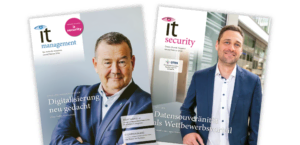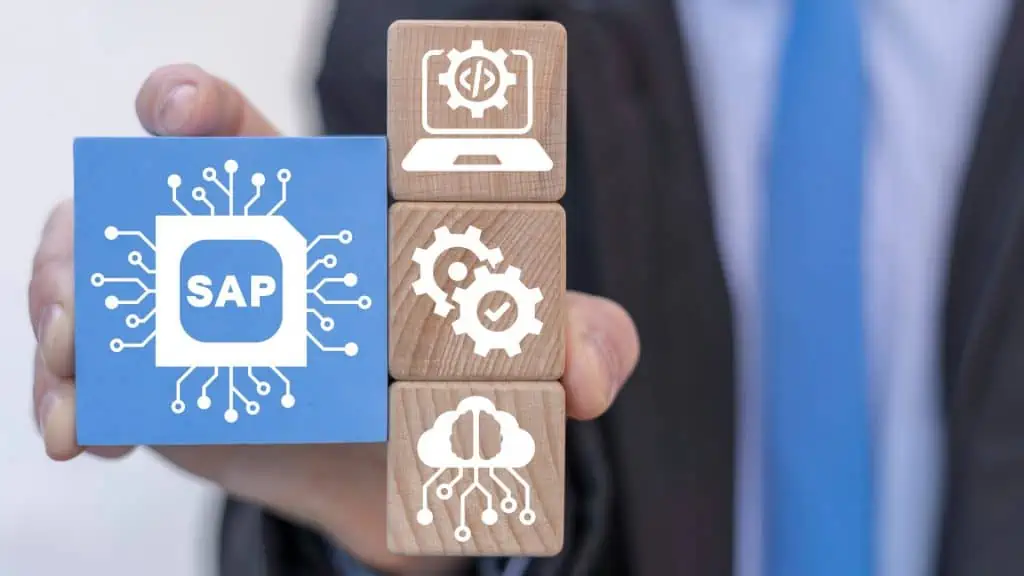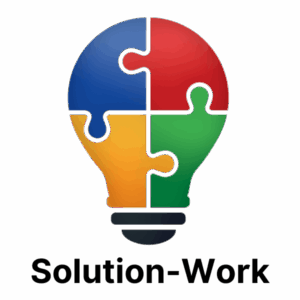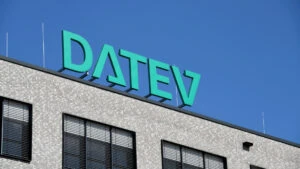Nowadays, SAP systems play a central role in every modern company. They enable business processes to be designed and handled in line with individual requirements and are used in a variety of ways thanks to their adaptability.
Originally developed by a German manufacturer, the software is regarded worldwide as a universal tool in daily work processes and is indispensable for many companies in order to exchange and make available all important data within different departments.
However, companies are facing a significant change in the foreseeable future: in 2027, the existing maintenance contracts for the SAP ERP system (SAP ECC), which is still frequently in use, will expire.
Companies must therefore prepare themselves for a far-reaching decision.
On the one hand, there is the option of sticking with the partly outdated technology and accepting the risk that the versions in use will no longer be maintained from 2027 and will therefore be prone to errors and may become unusable in the near future without the necessary updates.
In addition to this somewhat unattractive prospect, there is also the option of initiating a complete modernization of the ERP system with SAP S/4HANA and other associated systems.
The challenge of expiring maintenance contracts
Without professional support, many companies are already facing an almost insurmountable hurdle.
They are aware that a lack of updates for such complex software will lead to considerable problems in their business processes.
Impending security gaps, incompatibilities with new program modules and a lack of technical support are just some of the potential risks that can have a negative impact on business operations.
Migration to newer systems is therefore becoming an urgent necessity.
When switching to the new software, companies need to prepare for a comprehensive modernization and transformation of their relevant systems – a time-consuming and costly task that requires professional expertise and detailed planning.
In addition to the financial aspect, this creates the challenge of engaging external help while still integrating all of the company’s own employees into the process.
SaphirACon and the opportunities of transformation
Andreas Krieg, founder and Managing Director of SaphirACon, sees the upcoming change not only as a challenge, but also as a positive development that brings with it endless opportunities for modernization and digitalization. As a transformation consultant, it is his job to provide companies that are embarking on the path of transformation to the new SAP systems with in-depth information, to support them throughout the entire process and to provide them with individual support in the event of any difficulties.
Contrary to many of those affected, he sees the impending changeover as an opportunity for companies to enter the digital world. With new possibilities to standardize and unify internal and external processes – especially across different locations – the path to a structured development of new process chains is opening up.
One of the possible optimizations is to analyse existing processes, uncover potential sources of error and make the new processes more efficient. This primarily leads to the dissolution of isolated process islands and cumbersome procedures, which currently often cause more costs than benefits. Those who take the path to transformation can create a centralized and uniform approach in order to interact even more economically and responsively.
Progress thanks to modern technologies
Andreas Krieg has recognized enormous potential for companies, especially in the integration of new, modern technologies. He sees cloud-based applications as a promising way of linking all of a company’s locations with one another via central data access. As a result, all employees have uniform processes and clear structures as part of the adaptation process, which is particularly beneficial for efficiency and productivity. Cloud integration also offers improved scalability, flexibility and cost efficiency – a major advantage for companies that work on joint projects with several teams at different locations.
The urgency lies in the implementation
Although the year 2027 still seems a long way off, companies need to act quickly. As the deadline for the expiry of maintenance contracts approaches, more and more companies are entering into partnerships with external consultants to renew their systems and processes.
According to the experience gathered by SaphirACon, a transformation of SAP systems can often take several years.
This depends on the size and complexity of the company.
This means that 2027 will be reached sooner than many companies would like.
“Those who remain on the market without the right maintenance will have to reckon with technological backwardness and operational inefficiency,” says Krieg.
It is clear from the factors mentioned that it is high time to act.
Anyone who does not want to lose touch with the highly competitive market after 2027 and ultimately jeopardize their competitiveness must now make an important and far-reaching decision.
Understanding the new SAP systems as a forward-looking development is at the heart of this.
In this context, it is crucial for companies to work with competent partners who have experience in planning and implementing the relevant system and company transformation. Only in this way can the companies concerned ensure that the migration runs smoothly, that the new software is used optimally and that existing financial resources are used to create value. The aim of every company should be to exploit the full potential of technological innovations and thus develop in a future-oriented manner.

















